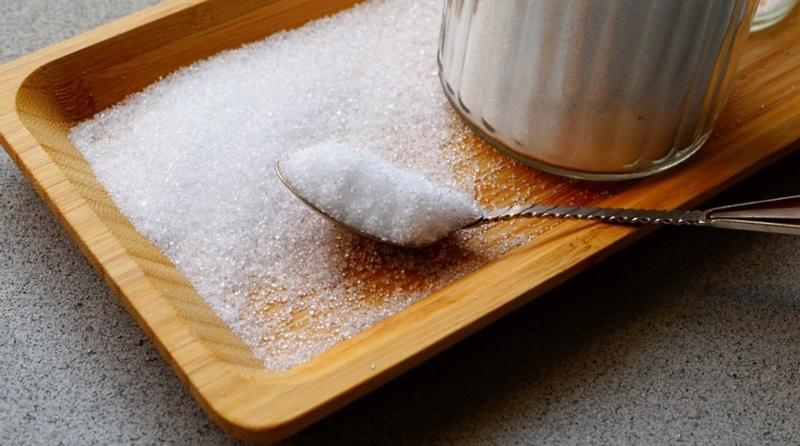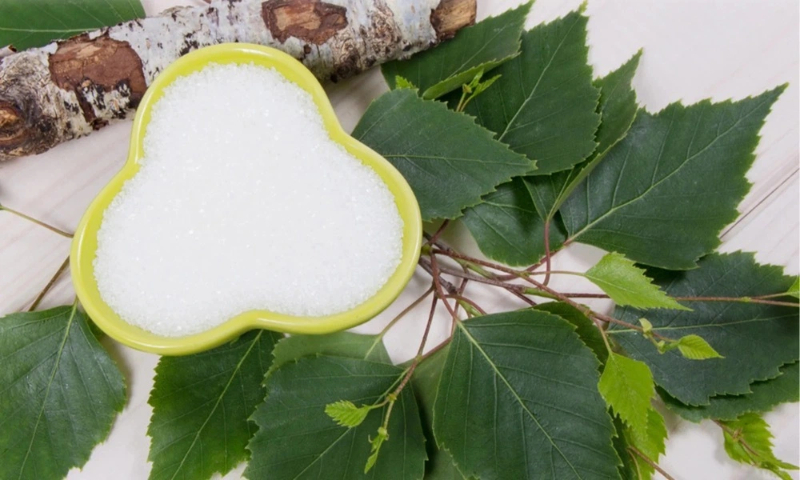







Content Menu
● Comparing Xylitol and Saccharin
● FAQ
>> 1. Is xylitol an ingredient in Sweet and Low?
>> 2. What are the health benefits of xylitol?
>> 3. How sweet is saccharin compared to sugar?
>> 4. Can xylitol be harmful to pets?
>> 5. Which sweetener is better for dental health: xylitol or saccharin?
Sweeteners play a crucial role in the food, beverage, and healthcare industries, offering alternatives to traditional sugar for various dietary needs. Among these sweeteners, xylitol and saccharin receive significant attention due to their widespread use and distinct properties. Many consumers and manufacturers often wonder if xylitol is an ingredient in Sweet and Low, a popular artificial sweetener brand. This article delves into the composition of Sweet and Low, explains what xylitol is, compares it with saccharin, and explores their benefits, uses, and health implications.

Sweet and Low is a well-known brand primarily consisting of saccharin, an artificial sweetener discovered in the late 19th century. Saccharin is approximately 300 to 400 times sweeter than table sugar (sucrose) but contains no calories, making it a favored choice for low-calorie and sugar-free products. This sweetener is synthetic and commonly found in packets for household sweetening, as well as in diet foods and beverages.
Importantly, Sweet and Low does not contain xylitol. Its sweetness comes exclusively from saccharin, which is chemically distinct from sugar alcohols like xylitol. While saccharin has undergone scrutiny over the years regarding its safety, it remains approved for use in many countries and widely accepted in the food industry.
Xylitol is a natural sugar alcohol (polyol) found in small amounts in many fruits and vegetables. It has a sweetness level similar to sucrose but with approximately 40% fewer calories. Xylitol is popular in oral care products like chewing gums and mints because it inhibits the growth of bacteria that cause tooth decay. Unlike saccharin, xylitol occurs naturally and offers unique dental benefits, including reducing plaque formation and increasing saliva production.
Xylitol is used extensively as a sugar substitute in non-cariogenic confectionery, pharmaceuticals such as throat lozenges, and even dentifrices like toothpaste. However, its cost is higher than traditional sweeteners, which limits its wider use in mass-produced foods. Additionally, large doses of xylitol can have laxative effects, which is common with many sugar alcohols.
| Feature | Xylitol | Saccharin |
|---|---|---|
| Source | Naturally occurring sugar alcohol | Synthetic artificial sweetener |
| Sweetness level | Similar to sugar (100%) | 300-400 times sweeter than sugar |
| Calories | About 2.4 calories per gram | Zero calories |
| Dental benefits | Reduces plaque and tooth decay | No dental benefits; potential risks debated |
| Common uses | Chewing gum, candies, oral care products | Tabletop sweeteners, diet foods, beverages |
| Health considerations | Low glycemic impact, safe in moderation | Some historical cancer concerns (now refuted) |
| Cost | Higher cost | Generally low cost |
Xylitol's antimicrobial properties are especially valuable for oral health, as it reduces bacterial adherence and inhibits enamel demineralization. Clinical studies support its efficacy in preventing dental caries and promoting oral hygiene. Saccharin, although highly effective as a sweetener, does not provide these benefits.

Both sweeteners have been deemed safe for human consumption by regulatory authorities such as the FDA and EFSA when used within recommended amounts. Xylitol is safe for humans but highly toxic to dogs, and even small amounts can cause severe health issues in pets. Saccharin's early animal studies raised cancer concerns, but long-term human studies have cleared these out, endorsing its continued use.
Xylitol is associated with some digestive discomfort if consumed in large quantities due to its sugar alcohol nature. Moderation is advised, with recommended dosing generally not exceeding 8 grams daily in caries prevention.
Sweet and Low with saccharin serves predominantly as a low-calorie sugar substitute in beverages and foods where intense sweetness is needed without added calories. Xylitol is widely applied in healthcare and confectionery products aimed at dental benefits and sugar reduction, such as chewing gums, mints, and dietary supplements.
Sweet and Low does not contain xylitol; it is formulated with saccharin, a powerful synthetic sweetener significantly sweeter than sugar. Xylitol, by contrast, is a natural sugar alcohol with unique dental health benefits and is used mainly in sugar-free gums and oral care products. Understanding these differences helps consumers and manufacturers make informed choices depending on their health goals, product formulation needs, and cost considerations. Both sweeteners are safe when used appropriately, but they serve different purposes in the food and healthcare industries.

No, Sweet and Low is sweetened with saccharin and does not contain xylitol.
Xylitol helps reduce dental plaque, inhibits bacteria causing tooth decay, and increases saliva production, contributing to better oral health.
Saccharin is about 300 to 400 times sweeter than regular sugar, meaning very small amounts are needed to achieve desired sweetness.
Yes, xylitol is highly toxic to dogs and some other pets and should be kept away from them.
Xylitol is considered better for dental health due to its antimicrobial properties and ability to reduce plaque and cavities, unlike saccharin.
[1](https://pmc.ncbi.nlm.nih.gov/articles/PMC6236052/)
[2](https://www.health.com/best-and-worst-artificial-sweeteners-7974926)
[3](https://health.clevelandclinic.org/best-and-worst-sugar-substitutes)
[4](https://www.mayoclinic.org/healthy-lifestyle/nutrition-and-healthy-eating/in-depth/artificial-sweeteners/art-20046936)
[5](https://myhealth.alberta.ca/Health/healthy-living/pages/conditions.aspx?Hwid=abj7112)
[6](https://www.nhs.uk/live-well/eat-well/food-types/are-sweeteners-safe/)
[7](https://www.fda.gov/food/food-additives-petitions/aspartame-and-other-sweeteners-food)
[8](https://www.nbcnews.com/health/heart-health/artificial-sweetener-safety-sugar-research-rcna159983)
[9](https://www.peacehealth.org/medical-topics/id/abj7112)
Top Nutritional Supplement Manufacturers And Suppliers in Indonesia
Top Nutritional Supplement Manufacturers And Suppliers in India
Top Nutritional Supplement Manufacturers And Suppliers in Germany
Top Nutritional Supplement Manufacturers And Suppliers in France
Top Nutritional Supplement Manufacturers And Suppliers in Canada
